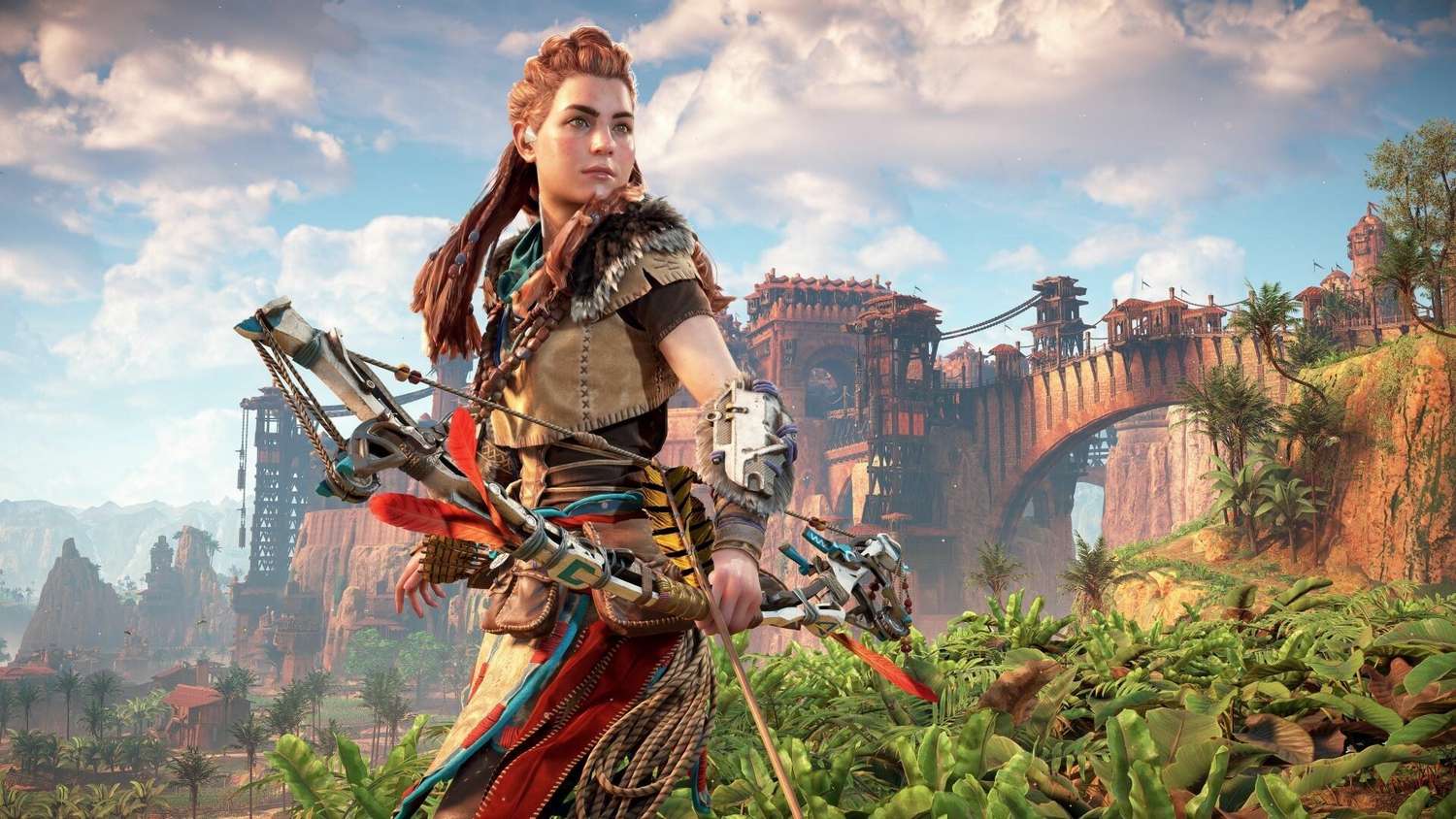Sony Files Preliminary Injunction Against Tencent’s Alleged ‘Horizon’ Clone, ‘Light of Motiram’
Popular Now
 Sonic the Hedgehog™ Classic
Sonic the Hedgehog™ Classic
 R.E.P.O
R.E.P.O
 League of Legends
League of Legends
 Grand Theft Auto V
Grand Theft Auto V
 God of War Ragnarök
God of War Ragnarök
 Poppy Playtime
Poppy Playtime
 Among Us
Among Us
 Fall Guys
Fall Guys
 Genshin Impact
Genshin Impact
 BeamNG.drive
BeamNG.drive  The high-stakes legal battle over intellectual property in the AAA video game industry has intensified, with Sony Interactive Entertainment (SIE) filing a preliminary injunction against Chinese tech behemoth Tencent Holdings Ltd. over its upcoming open-world survival game, Light of Motiram.
The high-stakes legal battle over intellectual property in the AAA video game industry has intensified, with Sony Interactive Entertainment (SIE) filing a preliminary injunction against Chinese tech behemoth Tencent Holdings Ltd. over its upcoming open-world survival game, Light of Motiram.
The injunction, filed on October 15, 2025, in the U.S. District Court for the Northern District of California, seeks to immediately bar Tencent from utilizing core elements of its game that Sony claims are “blatant” and “pervasive” copies of the company’s immensely successful Horizon Zero Dawn and Horizon Forbidden West franchises. This aggressive legal maneuver comes as a direct response to Tencent’s earlier motion to dismiss the original copyright and trademark infringement lawsuit, which Sony filed in late July 2025.
The core of Sony’s renewed legal offensive centers on preventing further consumer confusion and “irreparable harm” to the Horizon brand. The Japanese gaming giant is specifically targeting key visual and thematic elements of Light of Motiram that it argues are protected intellectual property.
The Crux of the Injunction: Character and Aesthetic Cloning
 Sony’s preliminary injunction request highlights several areas of alleged infringement, which have garnered widespread attention from the gaming community and industry analysts since Light of Motiram’s November 2024 announcement:
Sony’s preliminary injunction request highlights several areas of alleged infringement, which have garnered widespread attention from the gaming community and industry analysts since Light of Motiram’s November 2024 announcement:
- The Protagonist: SIE is demanding that the court force Tencent to redesign Light of Motiram’s main character—described in court documents as a “fierce tribal warrior huntress characterized by fiery red hair”—arguing that she is an undeniable, confusingly similar “look-alike” to Horizon’s iconic heroine, Aloy.
- Post-Apocalyptic World Design: The complaint points to the identical blend of a post-apocalyptic, tribal world setting juxtaposed with colossal, animalistic robotic creatures. Sony claims this specific, highly-stylized aesthetic is unique to the Horizon series.
- Musical Scores and Promotional Material: The filing also alleges that a melody used in a Light of Motiram trailer is too similar to the Horizon Zero Dawn Original Soundtrack, further muddying the waters for consumers. It has been reported that Tencent even hired a composer who previously worked on the Horizon series, a detail Sony is using to underscore the deliberate nature of the alleged copying.
In its latest filing, Sony doubled down on its position, directly addressing Tencent’s motion to dismiss. Tencent had previously argued that Light of Motiram merely utilizes “time-honored tropes” and genre conventions found in other titles like The Legend of Zelda: Breath of the Wild and Far Cry: Primal. Sony dismissed this defense as “nonsense,” stating unequivocally that the unique combination and execution of these elements constitute undeniable copyright infringement.
Tencent’s ‘Shell Game’ Allegations and Industry Precedent
Beyond the visual and thematic copying, Sony’s legal team has accused Tencent of attempting a “shell game” with its corporate structure to evade liability. According to court documents, Tencent is allegedly trying to shield various subsidiaries—including the development studio Polaris Quest—from service of process, while still leveraging the powerful Tencent name for promotion.
This accusation also ties into a critical detail revealed in the lawsuit: Sony claims Tencent approached the company in March 2024 seeking a license for a mobile Horizon game, which Sony subsequently declined. Following this rejection, Light of Motiram was announced. Sony argues this timeline demonstrates a willful intent to copy the IP after being denied legitimate access.
The outcome of this case is set to establish a major legal precedent in the global video game market. While genre inspiration is common in game development, courts have historically drawn a line when a new product is deemed a “slavish clone” that directly causes consumer confusion. If granted, the preliminary injunction would represent a significant win for Sony, potentially forcing a massive, costly overhaul of Light of Motiram’s design and promotional campaign before its delayed release (currently slated for late 2027).
 The Stakes: Franchise Health and Global IP Protection
The Stakes: Franchise Health and Global IP Protection
The potential for harm to the Horizon franchise is a central argument in Sony’s filing. Executives from Guerrilla Games (the developer of Horizon) and PlayStation Productions have provided sworn declarations asserting that the confusion caused by Light of Motiram’s promotional materials is already damaging the brand’s growth, especially as the franchise is in a major expansion phase.
- Cross-Media Expansion: Court documents unexpectedly revealed new details about the upcoming Horizon Zero Dawn film adaptation, confirming that the script is finalized and production is moving forward. Sony argues that the market confusion caused by Tencent’s game jeopardizes the success of these crucial cross-media ventures.
- Financial Risk: The Horizon series represents a multi-million dollar investment and is one of PlayStation’s most important modern franchises. Protecting this digital asset from dilution is a top priority for SIE, making this case a critical demonstration of their commitment to safeguarding their intellectual property rights globally.
The hearing for the preliminary injunction is scheduled for November 20, 2025. The gaming world is watching closely to see whether the court will grant Sony the immediate relief it seeks, or if Tencent’s defense that it is merely “fencing off well-trodden gaming tropes” will prevail. This landmark case could reshape the boundaries of creative freedom and intellectual property protection for new video game releases worldwide.









 The Stakes: Franchise Health and Global IP Protection
The Stakes: Franchise Health and Global IP Protection